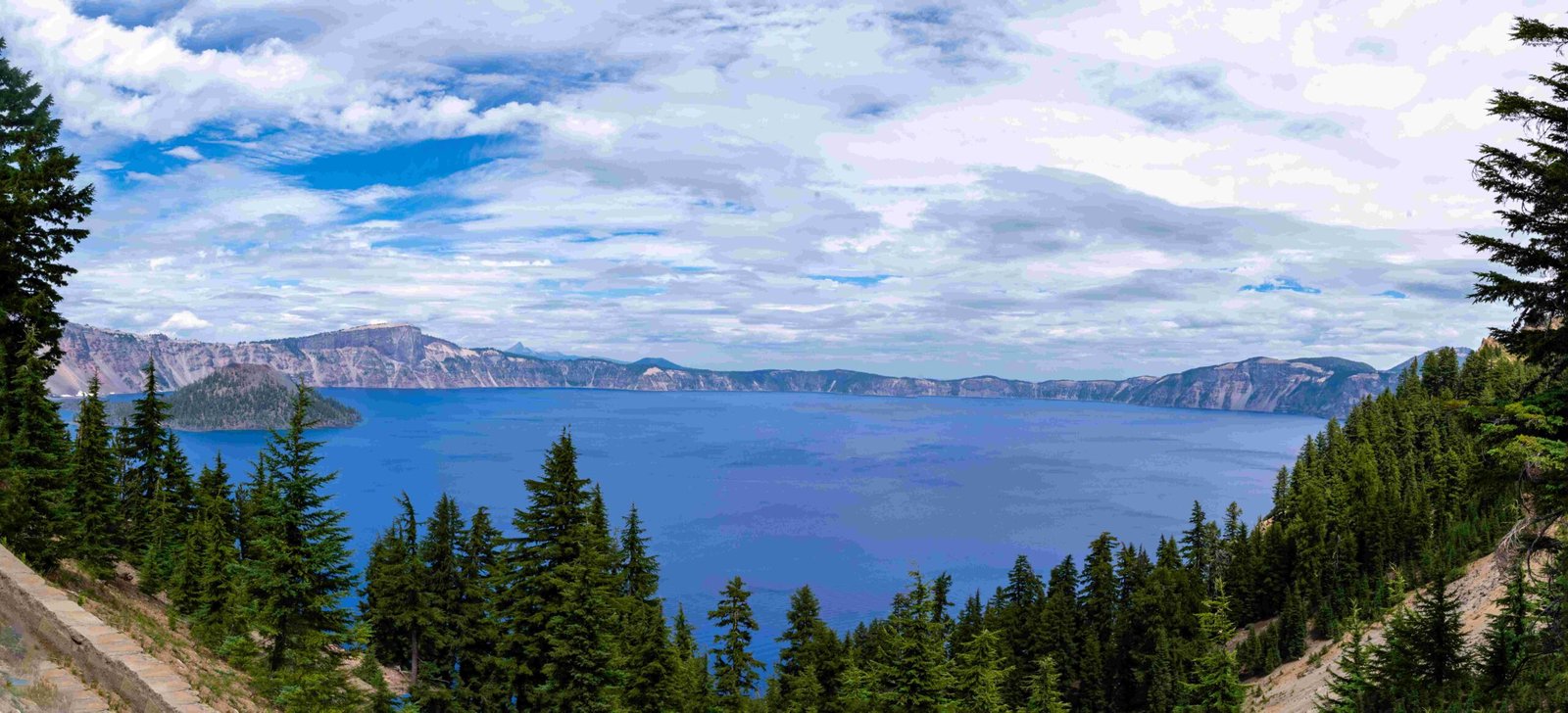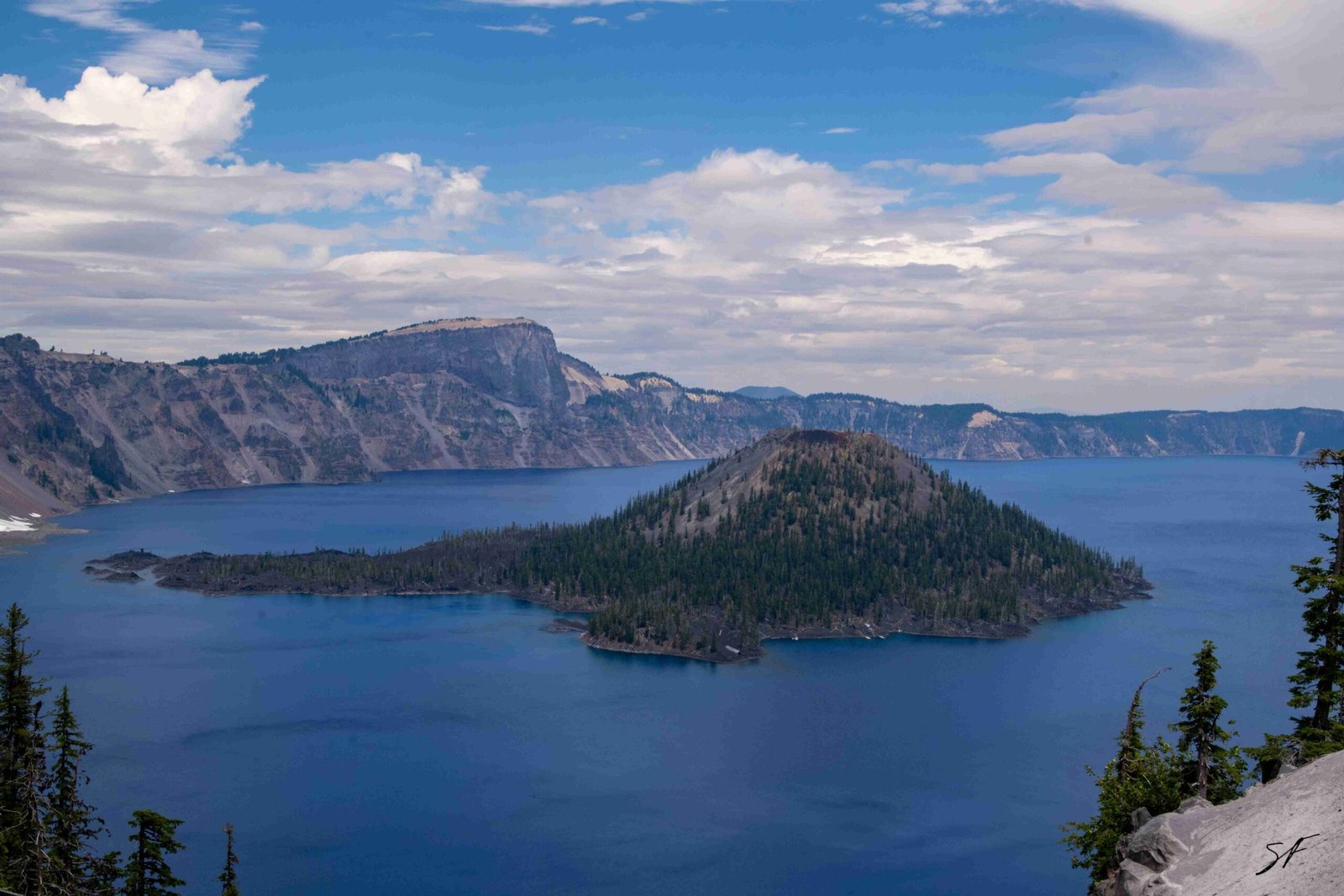Crater Lake, located in Oregon, USA, is renowned for its exceptional depth and pristine blue waters. While it is indeed one of the deepest lakes globally, it is not the deepest lake in the world. Crater Lake ranks as the seventh or eighth deepest lake worldwide, depending on whether subglacial Lake Vostok in Antarctica is included. With a maximum depth of 1,949 feet (594 meters), Crater Lake holds the title of the deepest lake in the United States. However, the world’s deepest lake is Lake Baikal in Russia, plunging to an astonishing depth of 5,369 feet (1,637 meters).
What Makes Crater Lake So Deep?

Crater Lake’s impressive depth is a result of its unique geological formation. The lake was created approximately 7,700 years ago when Mount Mazama, a massive volcano in the Cascade Range, erupted and collapsed upon itself. This cataclysmic event formed a deep caldera that gradually filled with rainwater and snowmelt over the course of about 250 years, creating the deep, clear lake we see today.
The volcanic origin of Crater Lake contributes to its exceptional depth in several ways:
- Caldera formation: The collapse of Mount Mazama created a deep basin.
- Steep walls: The caldera’s walls are nearly vertical, allowing for a rapid increase in depth.
- Lack of sediment: The lake has no inflowing rivers, which means minimal sediment accumulation on the lake bottom.
How Does Crater Lake Compare to Other Deep Lakes?

To put Crater Lake’s depth into perspective, let’s compare it with some of the world’s other deep lakes:
| Rank | Lake Name | Location | Maximum Depth (feet) | Maximum Depth (meters) |
|---|---|---|---|---|
| 1 | Lake Baikal | Russia | 5,369 | 1,637 |
| 2 | Lake Tanganyika | Africa | 4,823 | 1,470 |
| 3 | Caspian Sea | Asia/Europe | 3,363 | 1,025 |
| 4 | Lake Superior | USA/Canada | 1,332 | 406 |
| 5 | Crater Lake | USA | 1,949 | 594 |
As we can see, while Crater Lake is impressively deep, it falls short of the extreme depths of Lake Baikal and Lake Tanganyika.
What Makes Crater Lake Unique Despite Not Being the Deepest?
Although Crater Lake isn’t the world’s deepest lake, it possesses several characteristics that make it exceptional:
- Clarity: Crater Lake is known for its extraordinary water clarity, with visibility often exceeding 100 feet.
- Purity: The lake’s water is among the purest in the world, with no inflowing streams or rivers to introduce pollutants.
- Color: The lake’s deep blue color is a result of its depth and purity, creating a mesmerizing visual spectacle.
- Volcanic features: Unique volcanic formations like Wizard Island and Phantom Ship add to the lake’s allure.
Why Is Lake Baikal Deeper Than Crater Lake?
Lake Baikal’s superior depth can be attributed to several factors:
- Tectonic origin: Lake Baikal occupies an active continental rift zone, which continues to deepen over time.
- Age: Lake Baikal is estimated to be 25-30 million years old, much older than Crater Lake’s 7,700 years.
- Size: Lake Baikal is significantly larger in surface area, allowing for a greater overall depth.
How Can Visitors Experience Crater Lake’s Depth?
While Crater Lake may not be the world’s deepest, its depth is still awe-inspiring and can be experienced in several ways:
- Boat tours: Guided boat tours offer a unique perspective of the lake’s depth and surrounding cliffs.
- Cleetwood Cove Trail: This trail provides the only safe and legal access to the lake’s shore.
- Rim Drive: A 33-mile scenic road encircling the lake offers numerous viewpoints to appreciate its depth and beauty.
- Wizard Island: Visitors can hike to the top of this cinder cone for panoramic views of the lake.
What Are Some Interesting Facts About Crater Lake’s Depth?
- Crater Lake contains approximately 4.9 trillion gallons of water.
- The lake’s water level remains relatively constant due to a balance of precipitation and evaporation.
- No fish are native to Crater Lake; those present were introduced in the late 19th and early 20th centuries.
- The lake’s depth contributes to its ability to moderate its own climate, rarely freezing over completely.
How Does Crater Lake’s Depth Affect Its Ecosystem?
The extreme depth of Crater Lake has a significant impact on its ecosystem:
- Limited nutrients: The depth and lack of inflows result in low nutrient levels, limiting algae growth.
- Pressure zones: Different depths create distinct habitats for various aquatic organisms.
- Temperature stratification: The lake’s depth leads to temperature layers that affect water circulation and oxygen levels.
In conclusion, while Crater Lake is not the deepest lake in the world, its exceptional depth, combined with its unique geological history and pristine waters, make it a natural wonder worthy of its fame and protected status as a National Park.
References:
1. How Deep is Crater Lake….Really?
2. How Deep?
3. The World’s Deepest Lakes

